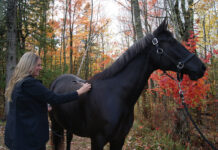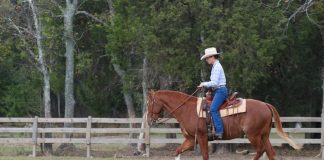Making difficult care decisions for a horse that has been closer to us than many family members can be traumatizing for a horse owner. Even when we put aside our feelings long enough to do what we believe is right, we are often miserable.
The bottom line for most horse owners is the welfare of the horse, yet some of us have a difficult time seeing past our own emotions enough to define what constitutes a good life for a horse.
Costly Vet Bills
All horse owners cross their fingers and hope they will never face a vet bill deeper than their pockets. We know the high probability of our horse getting a costly injury, colic scare, or disease, yet we rarely set aside money to cover a medical worst-case scenario. Then when disaster strikes or an injury requires long-term veterinary care, we find ourselves between the proverbial rock and a hard place.
A horse’s age, health history, prognosis for the current problem, and treatment expense become key determining factors when deciding on the next step. Sometimes the cost of treatment far exceeds an owner’s ability to pay.
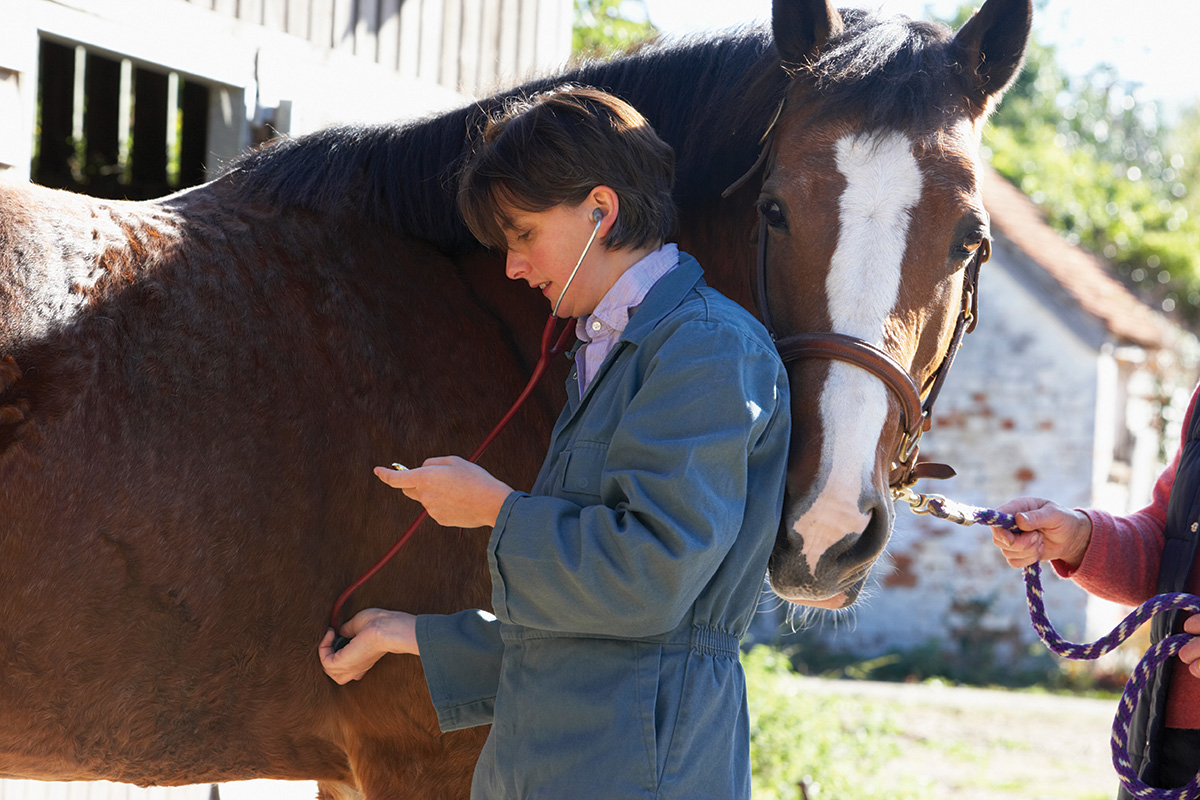
Well-intentioned owners may extend the life of an old horse long past the time it should be humanely euthanized, or delay veterinary treatment because of their own inability to face facts. For them, anticipating grief takes precedence over the animal they can’t bear to part with.
Veterinarians are often on the front lines of this type of indecision, and usually help owners by recommending what would be in the best interest of the horse. This can be the clarifying information horse owners need to get past their emotional hesitations. Far too many distraught owners throw caution to the wind and take on substantial debt with no guarantee of a positive outcome.
If the horse is young with a survivable injury, someone may be willing to take on the cost of treatment in exchange for transfer of ownership. Many horses with a career-ending injury for one activity are often suitable for another less physically demanding one, or can live out their lives as companion animals.
If not already overcrowded, many horse rescue organizations are willing to go the extra mile for a horse with a good chance of survival and utility. They may have enough staff and volunteers to support longer recoveries.
If efforts to re-home your horse fail, humane euthanasia is always an option, yet it’s no simple solution, even when fully justified. Owners may find themselves on the defensive with family and friends who don’t understand why such a drastic measure is necessary.
Acceptance comes from knowing all other options have been considered. Animals don’t ponder the future the way we do, thus a life filled with pain is never preferable to a peaceful passing.
Firing Professional Help
Some of us see our horse trainer, riding instructor, and farrier more often than many relatives, and form long-term relationships that seem more like friendships than business acquaintances.

Occasionally, problems arise and you may need to terminate their services. You can take action and feel comfortable with your decision; explain your reasons for the change and keep the conversation from becoming personal.
Dismissing someone is much easier if you feel certain you are doing the right thing for your horse and word it that way.
Selling Your Horse to Save Money
Money is at the root of most horse/owner splits. A family that suddenly loses half of their income due to loss of a job or divorce must make financial sacrifices that cut straight to the heart.
Because horse ownership makes a big dent in everyone’s budget, it is often the most obvious expense to eliminate. Owners who board their horses can sometimes bargain for reduced fees by working as stable help, but boarding stable owners may already have the hired help they need.
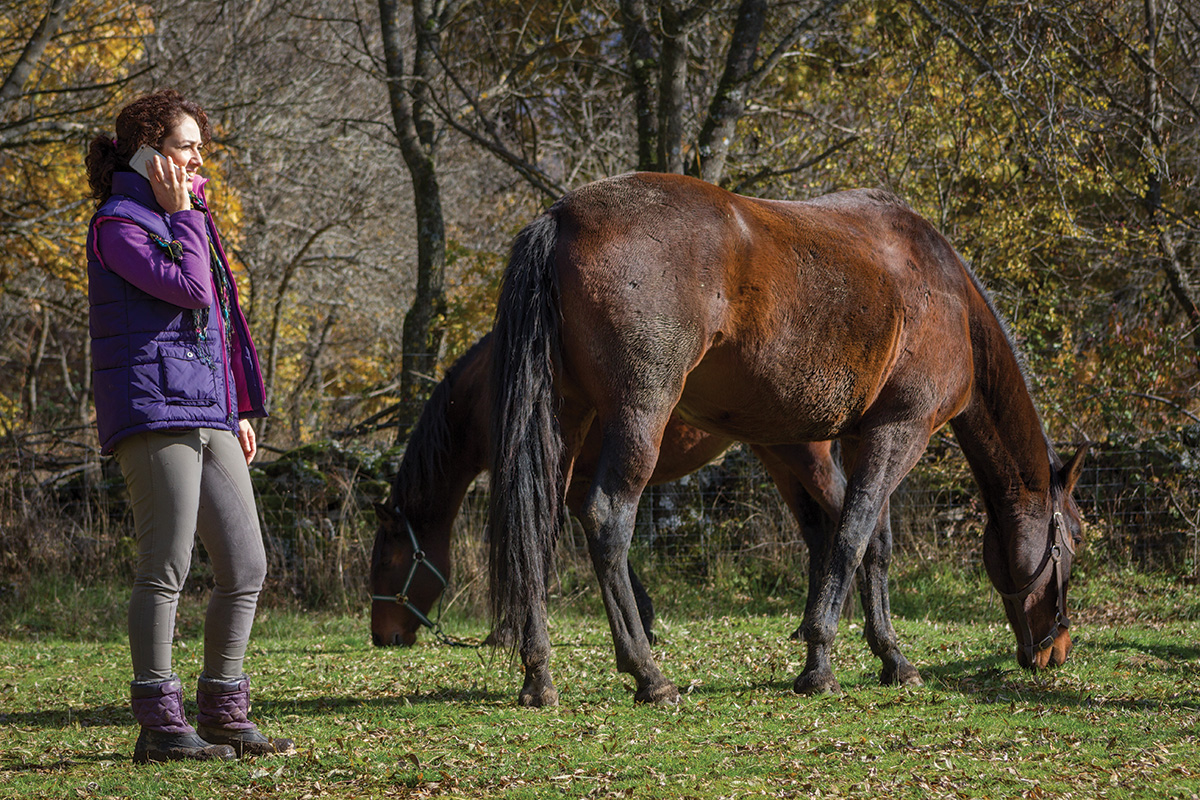
Sadly, selling your horse may be the best resolution even though it’s the most emotionally painful. If you’re lucky, you may find a new owner who is amenable to your continuing involvement with your horse by share boarding, where you pay an agreed-upon amount to allow you several days per week of access to your horse. This can be a win-win arrangement with two riders keeping the horse fit and reducing expenses for the new owner.
Most sales, however, require you to cut ties with your horse when the buyer’s trailer heads down the driveway. A goodbye pet on the nose for a horse you’d prefer to keep is crushing.
If you do plan to share-board, always create a written agreement signed by both participants to avoid misunderstandings. Also, make sure boarding stable managers approve of this type of arrangement at their barn. Rules, regulations, and insurance coverage are all factors to understand and agree to before day one of a new share-board arrangement.
Editor’s Note: New grants and programs are helping horse owners faced with sudden financial difficulties so they can safely relinquish or even keep their horse. Learn more about equine safety net programs.
When Health Intervenes
Consider yourself lucky if you’ve never had to alter your riding activities due to your horse’s health or your own. Many competitors have had their dreams crushed the moment their horse took one bad step.
Disappointment is an understatement when you must withdraw from a competition that required years of training. Clearly, the welfare of the horse is paramount and the correct course of action usually obvious, yet emotional fallout is unavoidable.
Your own health may fail due to an accident, illness, surgery, pregnancy, or age-related issue that causes a diminished ability to ride or work safely with horses. Your body dictates what it can and cannot do, and riding may become beyond your physical capabilities.
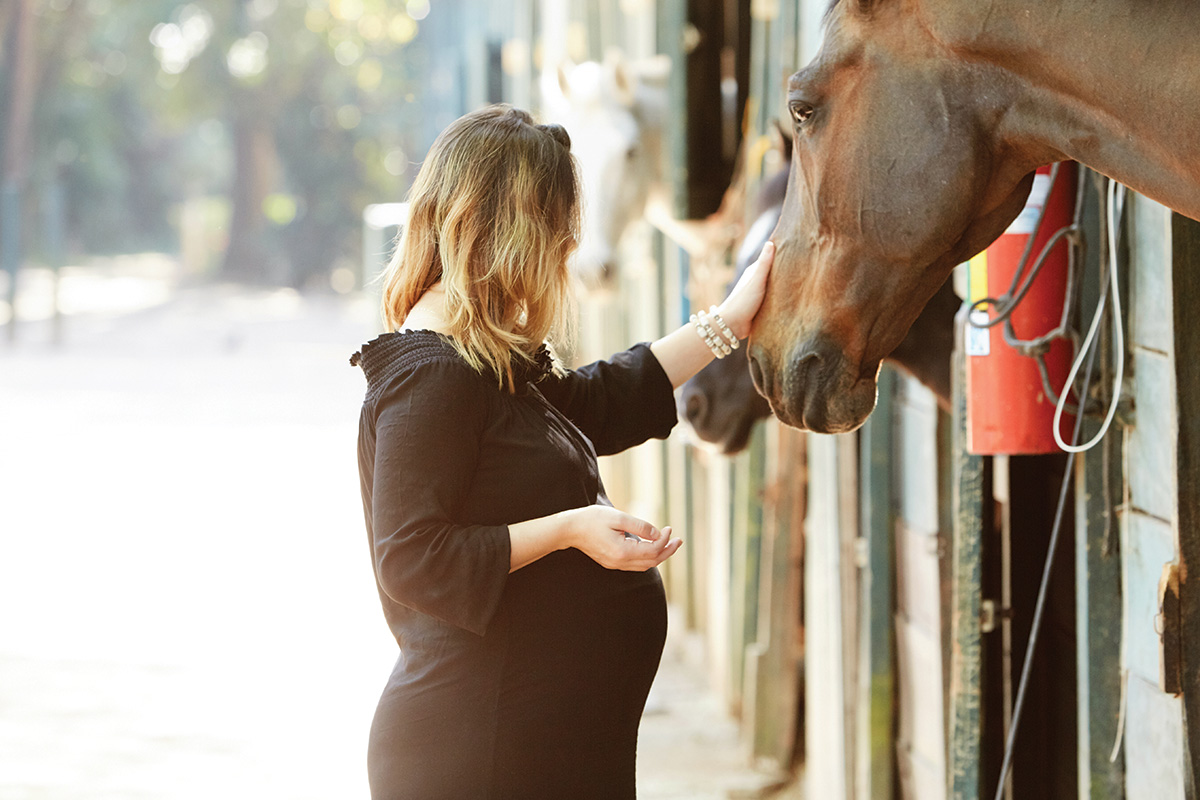
This is a bitter pill to swallow for most of us, especially if we must rehome a beloved horse. The best way to soften the pain is to find a new owner who will care for your horse as lovingly as you do.
Filling the Horse Void
Owning a horse is not the only way to enjoy a life with them. Leasing or share-boarding provides a great opportunity for you to stay in the game. You’ll still incur costs, but far fewer than being responsible for all of them.
If riding is out of the question, volunteering at local rescue operations or teaching the basics to those new to horses are options. Sharing your experience and skills with others is often the healing salve for those who would feel lost without a connection to horses.
This article about a horse owner’s most difficult decisions appeared in the September 2023 issue of Horse Illustrated magazine. Click here to subscribe!


